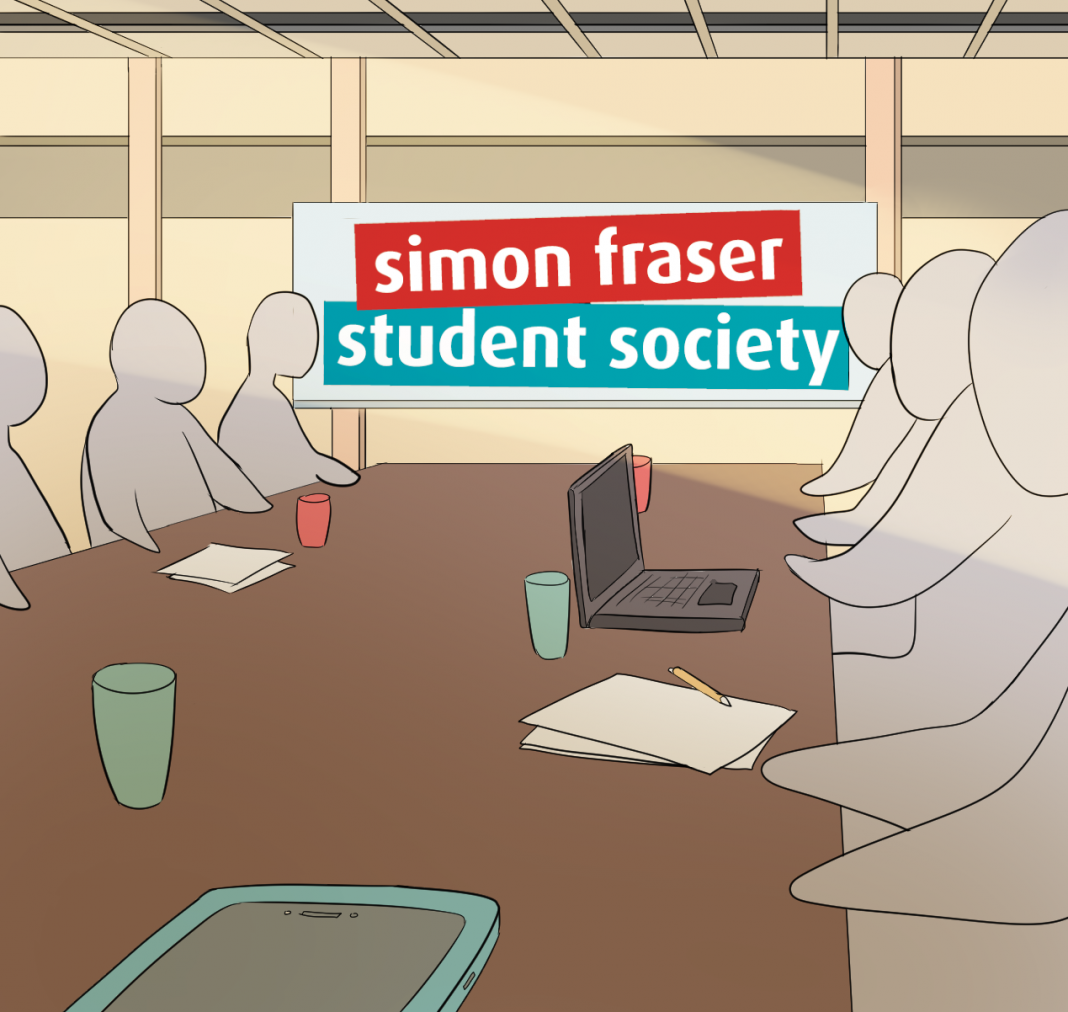By Cecile Favron and Henry Tran
U-Pass referendum coming this fall
The Simon Fraser Student Society (SFSS) will ask undergraduate students in a referendum this fall if they want to keep their U-Pass beyond the end of the school year.
The current U-Pass agreement between the society and the transit operator TransLink is scheduled to end in April.
“We actually do have an extension to the current agreement which means that there will be no fee increase,” explained Prab Bassi, vice-president of external relations, at the August 28 board meeting.
If approved, the extension of the agreement would run until the end of 2019.
The society will need a at least five percent of the undergraduate student body to vote in favour of the referendum question for students to keep their U-Pass. SFU undergraduate students currently pay $41 per month for the pass while they are in school.
Student societies across the province negotiated the extension of the agreement with TransLink, according to SFSS president Hangue Kim.
“This extension is just a band-aid solution so there are still going to be extensive negotiations for a longer term agreement with the government,” Kim said.
The board unanimously approved the motion to hold the referendum with the voting period scheduled for late November this year.
SFSS approves open-access textbook campaign
The SFSS Board of Directors unanimously approved funds for an education resource initiative it is calling the Textbook Broke campaign. The campaign’s goal is to increase the awareness of open educational resources among first-year students.
“This is a topic that a lot of students don’t know about,” Bassi explained to the board. The campaign will be launched online during the first week of classes from September 5–8 and in person from September 11–14.
“[We will] have a completed video of participants engaging with us and providing reasons as to why they consider [open educational resources] as important to them,” Bassi said. “We’re hoping to have an engagement piece at the end of our campaign.”
Erwin Kwok, vice-president university relations, noted that the society should target the teachers who chose textbooks in order to promote open educational resources. Science representative Parham Elmi responded, explaining that the campaign organizers will be using the videos to lobby the government for more resources.
Bassi noted that the first part of the initiative is to raise awareness which will be followed by more campaigns and potentially launch a petition.
The board allocated $1,195 in funds for the campaign.
Board decides to delay bylaw referendum
The SFSS has decided against proceeding with a referendum to approve a new set of bylaws this fall. The announcement came after board members expressed hesitation about the revisions to the bylaws.
“The current status of the project is that we have [the bylaws] drafted and complete and we have made revisions. Nonetheless there was some significant concern brought forward by the current board members,” explained Kwok.
Instead, the board decided to move forward with general consultations of undergraduate students to determine their priorities and concerns in the fall semester. From that, the SFSS plans to revise their bylaws to send to referendum at a later date.
He noted that the ambiguity in the bylaws and insufficient student consultation caused student concern numerous times in the past.
“Students don’t necessarily trust us,” Kwok said.
A bid by the previous board to pass changes to the bylaws by referendum this spring failed to garner the necessary threshold of ‘yes’ votes.
Board considers lobbying for needs-based grants
Bassi brought forward a potential project that would see the SFSS partner with their student society counterparts at the University of Victoria to lobby the provincial government for needs-based grants.
British Columbia is the only province that does not provide needs-based grants to students who are facing financial hardship, Bassi told the board.
Kwok asked that clarification be brought to the board pertaining to the concrete information about how the board would be partnering with their student society colleagues.
The board determined that the issue should be brought back at a later meeting when more information is available.
Discussion proposes resource list for students in sex work
Kwok presented a discussion to the board with the intention to make student resources on campus accessible to students engaged in sex work.
“[The aim is to] reframe our current existing resources on campus such that this demographic knows that there are resources out there,” said Kwok. “There is nothing currently that the SFSS or SFU in history . . . [had] any information or resources dedicated to these individuals.”
The Peak reported last year that SFU had one of the fastest-growing populations of ‘sugar baby’ students using the website Seeking Arrangements in Canada.
The board reached consensus in their support of the creation of a resource list.




